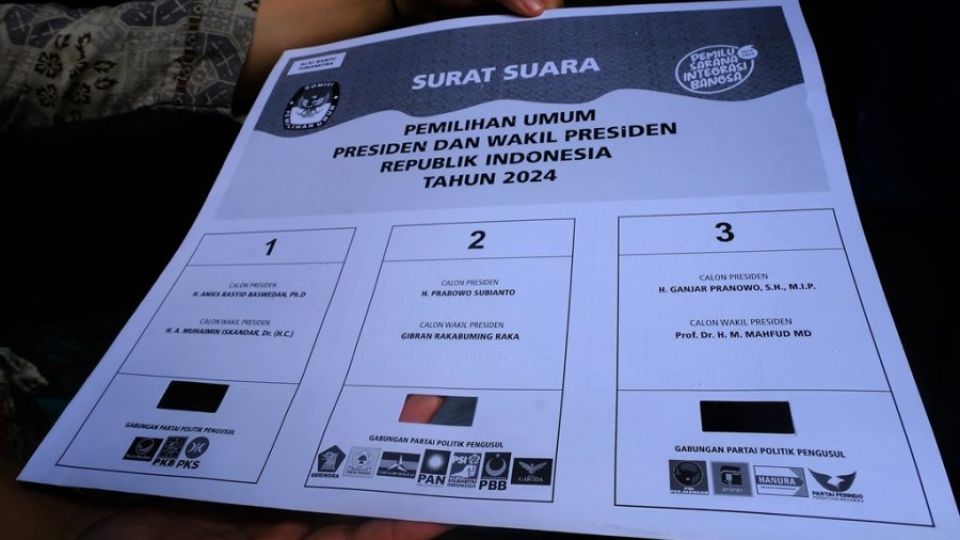January 30, 2024
JAKARTA – British weekly The Economist has revised down presidential candidate Prabowo Subianto’s electability in an online article published last Wednesday to show that he is averaging 47 percent from a range of between 42 and 52 percent in the latest opinion surveys.
Titled “Who will be the next president of Indonesia?”, the graph in the original article showed Prabowo leading the surveys with an average of 50 percent, followed by rival candidates Ganjar Pranowo and Anies Baswedan averaging 23 and 21 percent, respectively.
The article was updated initially on Thursday to show Prabowo still leading public opinion with 47 percent, with Ganjar and Anies neck and neck at 24 percent each. The article was last updated on Monday, but the figures remain unchanged.
The original figures had sparked some online criticism, including from Burhanuddin Muhtadi, executive director at pollster Indikator Politik, who expressed skepticism over the unnamed surveys The Economist used, as well as its methodology.
The article carries a source attribution at the bottom only citing “National polls; The Economist”, and an editor’s note dated Jan. 25 that reads: “This tracker has been updated to exclude polls which we do not consider reliable.”
Even if Prabowo manages to convert his 47 percent electability into actual votes on Feb. 14, he will still garner less than the 50 percent he needs to win the election in a single round. The updated figure thus suggests that the presidential election will head to the runoff set for June 26.
While Prabowo remains the front-runner in various local surveys on the 2024 presidential election, he is still not polling high enough for such surveys to predict an outright victory.
One of the latest surveys was published on Jan. 20 by Indikator Politik, which found that the former Army general was leading with 48 percent electability. The survey involved phone and in-person interviews with around 2,400 respondents across the country following the third election debate on Jan. 7.
The same survey showed that Anies and his running mate, National Awakening Party (PKB) chairman Muhaimin Iskandar, ranked second with 24.1 percent, while Ganjar and Coordinating Political, Legal and Security Affairs Minister Mahfud MD were trailing with 21 percent.
Indikator Politik noted that 6.9 percent of respondents were undecided and the survey had a margin of error of 2.9 percent.
The survey results showed that Prabowo’s electability had increased after the last presidential debate.
This was in contrast to observers noting the defense minister’s underwhelming performance on the topics of international relations, defense and security issues, all of which should have been a shoo-in.
Some observers said Prabowo was not at his best during the debate and speculated that this might have cost him his chance at securing an outright victory at the polls, now just slightly over two weeks away.
Meanwhile, several parties have been pushing for a single-round presidential election.
Among them is Prabowo’s running mate Gibran Rakabuming Raka, the eldest son of President Joko “Jokowi” Widodo and the incumbent Surakarta mayor, who urged his supporters and volunteers to “work harder” during a campaign event on Jan. 9 in Bali.
Analysts, including Indikator Politik’s Burhanuddin, had previously opined that the defense minister’s popularity might “continue to stagnate unless he does something big”.
The Prabowo-Gibran team has lately intensified its campaigns in some regions including Central Java, the traditional stronghold of the ruling Indonesian Democratic Party of Struggle (PDI-P) and its presidential candidate Ganjar.
Regardless of their current ratings, all three candidates still have one last chance to present their strongest showing at the final presidential debate on Feb. 4, a mere 10 days before election day. The final debate covers issues related to social welfare, culture, education, information technology, health, labor, human resources and inclusivity.


